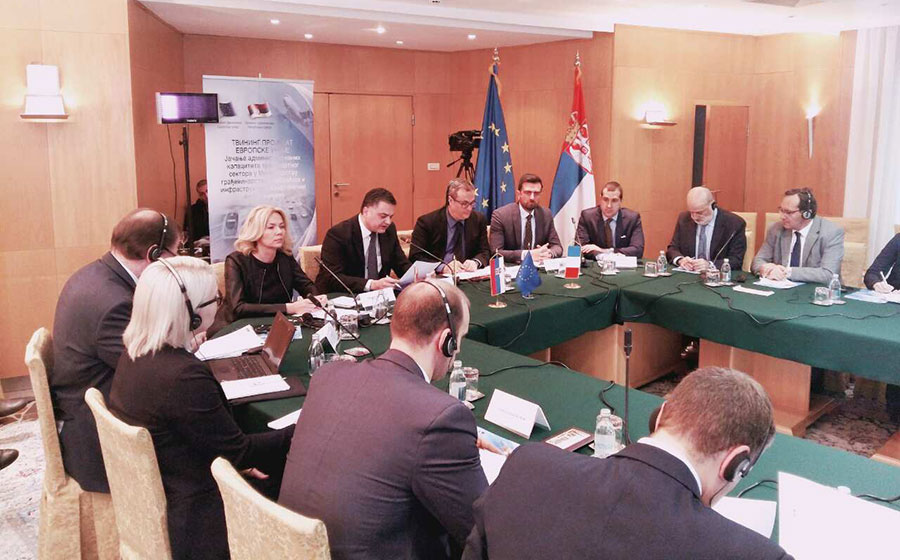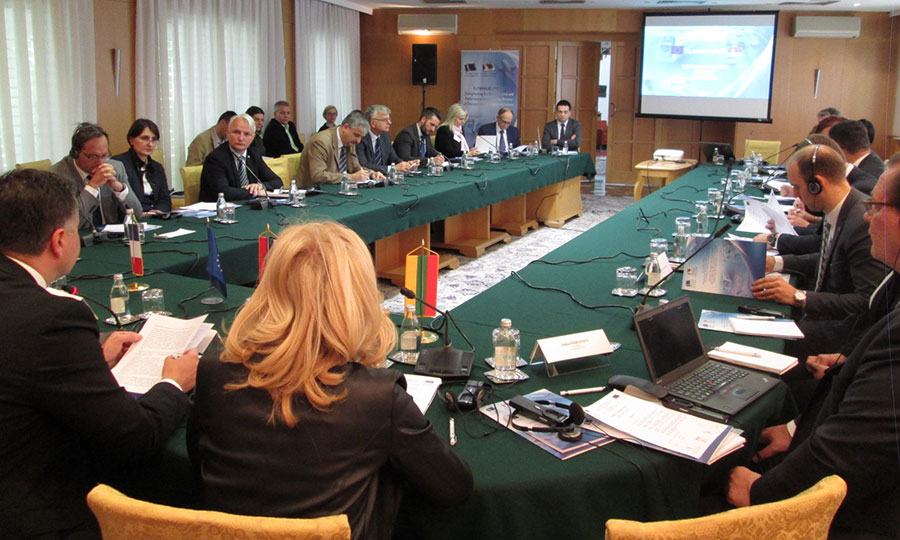The closing conference of the Twinning “Strengthening of administrative capacity of the transport sector in the Ministry of Construction, Transport and Infrastructure and the competent authorities” was held in Belgrade.
The value of this two-year project was EUR1.75 million funded through the EU’s IPA 2013 programme and co-funded by the Republic of Serbia. The goal of the project was to improve the administrative capacity of the Ministry and other relevant transport institutions in Serbia to carry out the tasks arising from the harmonization of national legislation with EU transport acquis.
This is the first project that was contracted within the Decentralized management system for projects financed from IPA donor funds.
The project was led by the French Ministry of Transport together with the Finnish Transport Agency and the Lithuanian Ministry of Transport. More than 10 Serbian institutions participated in the project: the Ministry of Construction, Transport and Infrastructure, the Directorate for Railways, the Infrastructure of Serbian railways, the Centre for investigation of accidents and serious incidents, the Agency for traffic safety, Nikola Tesla Airport, Civil Aviation Directorate and others.
The improvement of qualifications and competencies of employees was supported through more than 100 trainings, seminars and workshops as well as eight study visits to France, Finland and Lithuania.
 The Twinning engaged 50 international experts who have over the course of two years conducted 200 expert missions, wrote 12,000 pages of documents and 22 draft legal acts, in order to help Serbia align with the best practices of the European Union.
The Twinning engaged 50 international experts who have over the course of two years conducted 200 expert missions, wrote 12,000 pages of documents and 22 draft legal acts, in order to help Serbia align with the best practices of the European Union.
Through the five components of the project, civil servants of the Ministry of Construction, Transport and Infrastructure and the relevant transport institutions, with the support of colleagues from the EU Member States (France, Finland and Lithuania) have created a strategic framework for the development of transport system in the Republic of Serbia and tools for effective monitoring of the implementation of the strategy in accordance with EU standards, introduced a system for railway traffic safety management and a verification system in line with EU requirements and standards and expanded their knowledge and skills in performing the tasks arising from harmonization of national legislation with EU transport acquis.
The harmonization of national legislation with EU acquis, as well as strategic planning and monitoring of the implementation of the strategy, are continuous processes whose successful implementation is one of preconditions for successful conduct of accession negotiations under chapters 14 and 21, as well as successful integration of the transport system of the Republic of Serbia with the EU.
The project has contributed to improving the efficiency of the transport sector in Serbia in all modes of transport, improved planning, monitoring and achieving strategic objectives in the area of transport. The strategic framework has been developed on the basis of EU’s White Paper on transport policy and various analyses in the area of road, rail, air and waterborne transport. Horizontal measures, such as safety and security, intelligent transportation systems, energy efficiency and inter-modality, have also been key issues. Through introduction of the safety management system, the Serbian railway infrastructure agency has been supplied with a tool to raise the level of safety on the national railway network and make it compliant with European standards.




